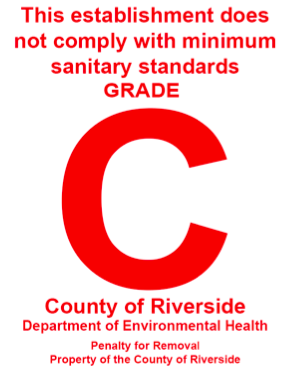Bad Doctors Aren’t Necessarily Bad Doctors
An article in this month’s Mayo Clinical Proceedings about the lack of any correlation between third-party patient satisfaction surveys and online physician reviews reminded me of what it was like doing dishes at my grandparents’ house and why I always wanted to be the washer rather than the dryer.
No Correlation Between Cleanliness of Dishes and Skills of Dish Washer
My grandma and grandpa in Denver never had an automatic dishwasher. In fact, until they sold the house in 1998, they still leased a rotary dial phone from the telephone company. Growing up, I spent nearly every Thanksgiving at their house, and after every meal, we’d form an assembly line in the kitchen to get everything cleaned and put away before the food got dried on. If enough people were there, the assembly line would have three main parts:
- Scrape off food and wash the dishes with soapy water
- Rinse the dishes with clean water
- Dry the dishes with a clean towel and put them away
You’d think “dry and put away” would be the favored spot because it’s less messy, but my sister and I often fought over who got to “scrape and wash.” The lesson from Dad was that the hardest and most important job was “dry and put away” because if anything got missed, if a dish wasn’t clean, it was the last person’s fault. “It doesn’t matter if the person washing missed that bit of food or if the person rinsing missed a spot. If the dishes aren’t clean when we get them out next time, that’s your responsibility,” he would tell the person at the end of the line. Little did I know, I was getting a powerful business lesson when I got stuck drying and putting away the dishes.
The Doctor Will See You Now
This month, Dr. Bradley C. Leibovich, MD, published an editorial about the results of a study that Mayo conducted to determine if there was or wasn’t any correlation between online physician reviews and the patient satisfaction surveys conducted by organizations such as Press Ganey. Their finding – no correlation. That is, physicians who have very different online ratings tend to have similar patient satisfaction scores through the formal, validated survey process.
One of the most important things that Dr. Leibovich cited in his editorial is that online physician ratings are influenced by far more than only the quality of the care that doctors themselves provide. He notes that negative online reviews were likely to be tied to “non-physician-related issues; such issues include, among others, institutional facilities, parking, waiting time to be seen, and patient interaction with the nursing and desk staff.”
Even if we intellectually understand that there are certain things not directly under a doctor’s control, we all see the doctor as the one in charge. They go to school for many years. They are experts. We go to them for expert treatment. Just like the corporate CEO who let his company defraud investors, we expect the person in charge of the medical office to take the blame for the bad wait time and pothole in the parking lot. We don’t care that the doctor isn’t an expert in asphalt repair.
The Patient Will Rate You Now
 Most of us assume that when we walk into a restaurant and see the Grade A that it will be a safe place to eat. With food service, the government doesn’t give us ratings on how friendly the servers are or how affordable the food is. If you want to know if it’s a “good” restaurant or not, you go to online ratings sites like Yelp. Consumers rate the quality of restaurant as a whole and the person in charge - the owner - will be rewarded or penalized accordingly.
Most of us assume that when we walk into a restaurant and see the Grade A that it will be a safe place to eat. With food service, the government doesn’t give us ratings on how friendly the servers are or how affordable the food is. If you want to know if it’s a “good” restaurant or not, you go to online ratings sites like Yelp. Consumers rate the quality of restaurant as a whole and the person in charge - the owner - will be rewarded or penalized accordingly.
Lots of factors have made us all more consumer-oriented in our selection and purchase of healthcare services. One of the side-effects is that we’re treating healthcare professionals as providers of a consumer experience. We care about expertise, quality, friendliness, comfort, convenience and connection. That’s a high bar to meet. Luckily, the price is already pretty high, too.
The Inevitability of Ratings
Patients aren’t going to stop providing online ratings of their consumer healthcare experience and online ratings organizations have little incentive to independently verify and improve their ratings systems. The best option is for providers to embrace online ratings, listen to patient feedback, and continuously work to improve the whole experience that patients have.
Providers, group practices, and integrated delivery networks can leverage online ratings to their advantage by integrating that information as well as social media feeds into their 360-degree view of provider performance, expanding the breadth of feedback they can use to improve their patients’ experience. This is the kind of modern and agile approach to data management and analytics that our clients are asking us to help them with. If you’re interested in learning more about what this looks like and how it could work for you, give us a call.
References:
- http://www.hcanews.com/news/online-doctor-reviews-dont-reflect-validated-patient-satisfaction-surveys?utm_medium=email&utm_campaign=HCA%20Newsletter%204-8-18&utm_content=HCA%20Newsletter%204-8-18+CID_193954e81c9e73fed979c9ac65c4ce85&utm_source=Campaign%20Monitor&utm_term=Theres%20a%20Disconnect%20Between%20Reviews%20and%20Patient%20Surveys
- http://www.mayoclinicproceedings.org/article/S0025-6196(18)30074-0/pdf
- http://www.mayoclinicproceedings.org/article/S0025-6196(18)30150-2/pdf





